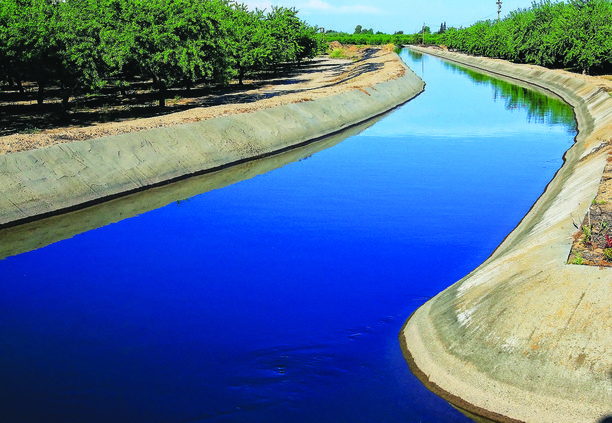South San Joaquin Irrigation District is pursuing a $125 million five-year capital improvement program to assure water reliability and enhance water conservation.
The endeavor will help assure the district can continue to effectively serve farmers irrigating over 50,000 acres as well as provide water to 230,000 residents in Manteca, Lathrop, and Tracy.
“The capital improvement program for the next five years is aggressive and carries a large price tag,” noted SSJID General Manager Peter Rietkerk.
The identified projects the SSJID is seeking to accomplish by the end of 2029 is a continuation of the district’s efforts to implement its 2022 Water Master Plan priority projects involving the irrigation distribution system.
While just under half of the dollar amount goes to irrigation projects, the big dollar item — the $69.1 million Canyon Tunnel Project — also will help assure drinking water deliveries to the three cities.
The tunnel will bypass roughly 2.5 miles of canals in the Stanislaus River Canyon between Goodwin Dam and Knights Ferry.
The 110-year-old joint supply canal that diverts water to both the SSJID and Oakdale Irrigation District has suffered rock slides in recent years.
Fortunately, the rock slides occurred during the winter months when no irrigation water was being delivered and the SSJID depends on storage at Woodward Reservoir to supply the three cities.
Repairs have always been made before the start of irrigation season.
But if a rock slide occurred during the irrigation season, it would create major problems.
Not only would it likely disrupt scheduled irrigation runs but it would require the cities to taper back water consumption as the district would be forced to conserve what storage it has at Woodward Reservoir until the supply tunnel is cleared, repaired, and reopened.
The narrow canal hugs the steep canyon walls above the river and is difficult to access.
The $69.1 million price tag reflects the SSJID’s share of the cost.
Work over the course of multiple years includes concrete pipe “lining”.
A spray cast concrete coating applied on the inside of existing concrete pipelines seals and improves structural integrity of buried pipelines, without the need to expose and replace.
It is SSJID’s identified long-term solution to rehabilitating the 300-plus miles of pipe within the district’s distribution network.
It also includes ‘float valves,’ which allow segments of pipeline to be automated using a mechanical valve and float system, concrete-box replacements, and other improvements to the distribution system to improve life and operation.
Other SSJID projects include:
Regulation Reservoirs ($6,190,000 and $4,390,000): The conservation reservoir project is aimed at capturing drainage and excess flows in the irrigation distribution system and reoperating the stored water to improve service to customers. The District is also evaluating groundwater recharge related options and benefits for these projects.
On-Farm Meter Project ($5,000,000): This conservation and flow measurement project will provide for installation of farm-gate flow meters and automated metering infrastructure to improve volumetric flow measurement and access for customer use information.
The farm meter project was not prioritized in the Water Master Plan, but the innovation and benefit of the project to growers and the District is huge for water conservation and measurement.
X-W Pipeline Connection Project ($2,306,951): This project is the first phase of a pipeline which will allow the district to transfer freed up capacity due to city development from irrigation lateral (pipeline) to another and significantly improve service in an overly burdened facility. The second phase of the X-W Pipeline Project comes in at $2,355,000.
The SSJID has applied for grants on two of the identified projects and is currently engaged with PFM Financial Advisors to develop a funding strategy for the overall program.
Rietkerk indicated the ability for the District to implement this capital program will ultimately depend on the results of the grant applications and the funding strategy.
The general manager also noted “the District is exercising prudence and will revise the capital improvement program and the pace of projects as necessary to remain financially sustainable over the long-term.”





